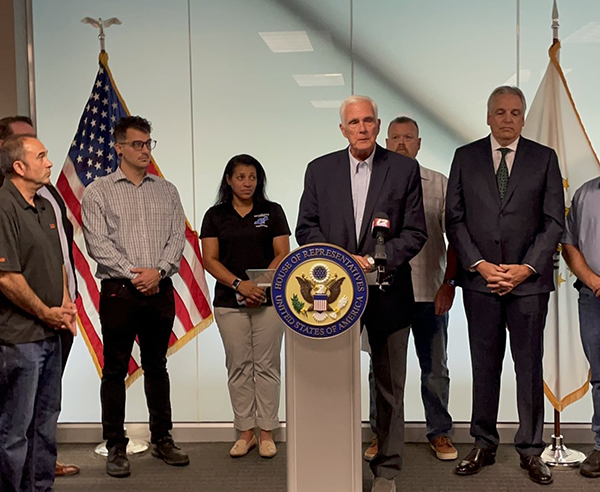Service & Solidarity Spotlight: U.S. Rep. from Rhode Island Introduces Federal Bill to Crack Down on Wage Theft

Working people across the United States regularly step up to help out our friends, neighbors and communities during these trying times. In our Service & Solidarity Spotlight series, we’ll showcase one of these stories every day. Here’s today’s story.
U.S. Rep. Seth Magaziner of Rhode Island held a press conference last week to announce that he will introduce a bill to make wage theft a felony nationwide when Congress reconvenes in September.
The Don’t Stand for Taking Employed American’s Livings (Don’t STEAL) Act updates the legal framework for wage theft violations to be comparable with other forms of criminal theft under federal law. Currently, employers who steal worker tips, pay them less than promised or deny them overtime, at most, face a misdemeanor or a fine under $10,000. Wage theft is already a felony in Rhode Island—thanks to legislation passed by the General Assembly last year—and the local labor movement is applauding Magaziner for building on this success by taking the fight to the federal level. The legislation has been endorsed by multiple unions and pro-worker organizations, both around the state and nationally.
“This legislation is a critical step forward in protecting workers rights and our entire economy,” said George Nee, president of the Rhode Island AFL-CIO. “Wage theft is insidious, pervasive and comes in many forms—from failing to pay for overtime to distributing pooled tips to an employer or supervisor. This is a rampant problem that needs to be fixed at the federal level, and I applaud Representative Magaziner’s proposed legislation. It will provide a deterrence to unscrupulous employers exploiting workers so that law-abiding businesses can fairly compete and that workers can get the wages that they have duly earned.”
